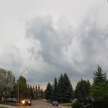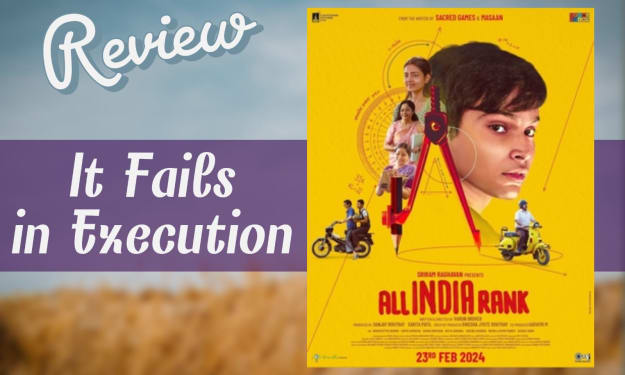"Dune" REVIEW
What makes a good adaptation?

Writers in the audience, take note: In the early 1960s, Frank Herbert wrote a serialized story about a desert world. Eventually, he decided to expand this serial story into a full novel. Once that was completed, Frank Herbert submitted this manuscript to over 20 publishers, all of whom rejected it. As a last-ditch effort, he submitted it to Chilton Books, despite the fact that sweeping sci-fi epics weren't exactly their bread and butter.
In fact, Dune entered the world thanks to a publisher best known for auto repair manuals.
So, writers, if you haven't gotten to the point where you're so desperate that you're trying to get published alongside auto repair manuals, you're in luck. One of the most influential books in science fiction is here to show you that there's still hope. After all, despite being published by Chilton Books, Dune went on to win a Hugo, be adapted by David Lynch, be adapted as a miniseries for the Sci-Fi channel, and spawn a whole sea of nerdy board games.
But that's not why we're here today.
We're here because, after a series of delays, the latest adaptation has finally been released into the world thanks to a creative team headed by Denis Villeneuve (the filmmaker we have to thank for 2016's Arrival). Between the star-studded cast and the mountains of hype, it's clear that Dune has moved into a new stage of cultural relevance. So our question is: how does this adaptation fare? Should you bother checking out Dune (2021)?
When people talk about movie adaptations, there's often a question of which is better: the book or the movie? However, while everyone's entitled to an opinion, oftentimes it feels like the real answer is that the adaptation is just different. Movies and books have different priorities and different strengths. So instead of making the various versions compete against each other, it's often more useful to ask whether or not they use the strengths of their form to their benefit.
A novel can provide subtler psychological insights through extremely specific word-choice and revelations that have no audio-visual analogue. But movies have their strengths too, and perhaps none of those strengths are more significant than the power of spectacle.
Dune, the novel, is interested in ideas, alliances, world-building, and the like. Dune, the movie, pulls of something nearly-miraculous by capturing much of that spirit and adding to it incredible visuals. The performances are strong, but just as significant is the cinematography and the set-design. The world of Dune has never felt so plausible or real, and the blending of CGI and practical components is so seamless that for two and a half hours I felt transported to another world.
Are some elements lost in translation? Of course. The audiobook of the novel takes over 20 hours, and the movie has only a little over a tenth of that amount of time. Details must be compressed so that the story keeps moving. The novel freely dips into different characters' perspectives, while the movie must remain outside of their heads. And even little details, like the chapter headings that quote from in-universe texts about the "history" of this world, cannot be communicated over film.
However, the existence of the movie doesn't detract from the existence of the book. If anything, the movie helps the book by bringing in new readers.
And when it comes to the unique strengths of the film, you really cannot overstate the power of the brutalist architecture and the incredible costume design.
Perhaps the area where the movie benefits the most is Rebecca Ferguson's performance as Lady Jessica. While the character was functional in the novel, Ferguson's performance brings a degree of humanity that a lot of Frank Herbert's writing lacked. Her emotions feel real, which goes a long way to convincing the audience that this all really could be happening.
Suffice to say, Dune is one of the most effective adaptations in recent memory. It captures the spirit of the novel without merely using the book as a shot-list. It develops many of the same themes as the novel, but it does so with the strengths of film. The visuals are awe-inspiring, the performances are all somewhere on the spectrum between solid and excellent.
Here's hoping that the movie makes enough money to justify finishing the series. Watching it, one cannot help but think that we are having the chance to experience what it was like when Fellowship of the Ring or Star Wars first hit theaters. If the subsequent parts are made and maintain this degree of quality, this just might be a new classic of epic filmmaking.
"Dune" is currently playing in theaters.
About the Creator
Littlewit Philips
Short stories, movie reviews, and media essays.
Terribly fond of things that go bump in the night.






Comments
There are no comments for this story
Be the first to respond and start the conversation.